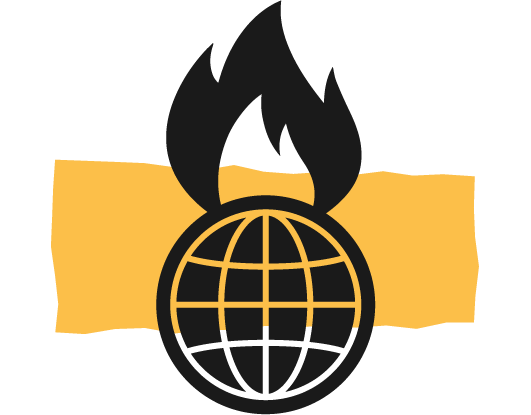Methane: A Stressing Pollutant
When asked to name a greenhouse gas, the non-chemists among us think of carbon dioxide (CO2). Awareness of CO2 and its effects on climate and ecology are common, such as increasing global temperatures and contributing to acid rain. However, not enough is said or done to combat methane's contribution to climate change.
CO2 is not the only greenhouse gas we need to be aware of
Methane contributed to the 1°C rise in global temperature.
According to the latest report by the Intergovernmental Panel on Climate Change, methane (CH4) accounts for 30% of the net rise in global temperature since before the industrial era. Whilst methane is naturally released into the atmosphere by a multitude of sources, such as permafrost and wetland decay, the majority is not.
60% of methane in the atmosphere is due to human industry.
Worse still, the amount of methane being released by natural sources is increasing as well.
Temperature rise is contributing to a feedback loop: global warming increases due to methane pollution, which increases natural methane release, further increasing global warming.
Human-driven methane emission comes from fossil fuels, agriculture and consumer waste. Gas leaks and vents during delivery processes are the most significant contributor from fossil fuels. Ruminant digestion, performed by cattle, sheep and most grazing livestock, releases significant amounts of methane that would otherwise remain stored as cellulose and other organic carbon in grass or compost.
With man-made sources of methane overtaking natural production, there are several methods to combat the negative effects methane is having on our planet.
Methane emission CAN be mitigated.
Monitoring methane production and lobbying for industries to move away from processes releasing it into our atmosphere could increase the amount of time we have to implement other solutions that could remove it.
Limiting the amount of methane released by natural processes would provide a similar and complimenting effect.
However, decreasing methane pollution alone will not combat what is already in our atmosphere, so it must be used in conjunction with other methods.
EAMO can safely remove methane from the atmosphere.
Experts from Methane Action suggest enhanced atmospheric methane oxidation (EAMO), which would utilise natural methods of methane removal by oxidisation, but on a larger scale.
Oxidation is the process by which chemicals are broken down and incorporated into other structures. In this case, methane is converted to water and carbon dioxide.
Neither removing nor mitigating methane is enough.
To limit global temperature rise, industries must begin to mitigate their methane production or leaks, implement initiatives to remove methane that has already been emitted, and continue action to reduce CO2 emissions.
Incorporating EAMO methods at agricultural sites could cut methane pollution at the source, allowing us more time to deal with other factors accelerating climate change.
World leaders need to hold polluters responsible.
Identifying and monitoring sources of methane generation is the first step. However, legislation requiring industries to either reduce methane by-products or incorporate EAMO as part of their business model would be a far greater step forward.
Initiatives to reduce methane already accumulated in our atmosphere are not an excuse to increase the industrial methane. The amount of methane that can be generated in future by natural sources might increase global temperatures.
As we are over the greenhouse gas 'budget' already, methane removal must be employed alongside reduction in methane production.
At COP26, world leaders are meeting to decide on further climate action. The US and EU will be proposing a 30% reduction of human methane emissions by 2030. Other groups, such as the Climate and Clean Air Coalition and United Nations Environment Programme, believe the goal should be a 45% reduction in that time.
You can help mitigate methane emissions!
Scientists Warning Europe are promoting the signing of the latest climate warning paper that covers pollutants, including methane. Help us set a world record by having over 20,000 people with post-graduate degrees in the sciences sign this paper. Anyone with a post-grad degree in any science can sign.
Read the paper and join the climate action signing the paper at: https://www.scientistswarningeurope.org.uk/signature
Pressuring businesses and policymakers across the world can also have a big impact. Emailing local politicians expressing your concerns and voting for green-minded individuals shows that the climate is a priority for the people and must be the priority of those in power.
More information for action can be found at Methane Action, an activist group of scientists dedicated to tackling this climate stressing pollutant.
Although the situation is dire, events such as COP26 can spell the turn-around and prompt further action to save our climate.
Action must be taken not just for the climate but for ourselves. What better time than now?




